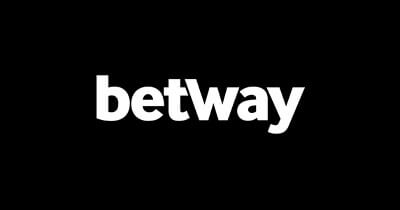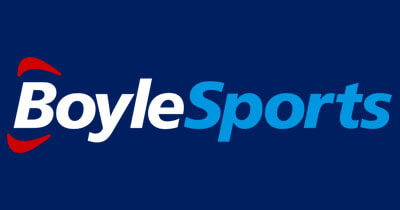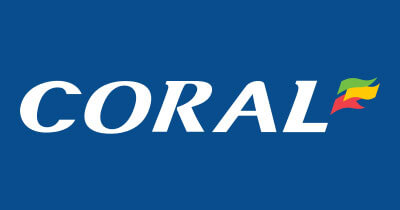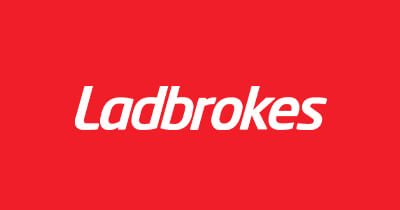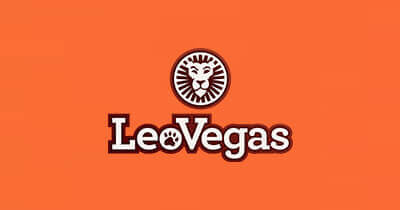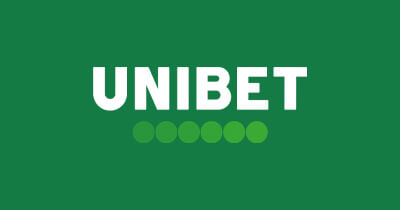What are Betting Odds
Betting odds give you information on the possible outcome of a particular event. Bookmakers provide you with sports betting odds after analysing wagers and sporting trends. Betting odds also allow you to work out your potential returns. Comparing betting odds is an integral part of sports betting as it allows you to find the best possible value.
Types of betting odds
The UK market offers odds for a huge range of sports. The most common are football and horse racing, along with a number of other traditional sports for spectators, performers and bettors, including football, rugby union, rugby league, cricket, tennis, snooker and basketball. You can also bet on more niche sports such as chess, volleyball and badminton. You can bet on winners of leagues and tournaments and individual matches, as well as various prop markets and on special events surrounding the sport. These are the most typical markets for which you can find odds in the UK.
Futures Bet
This is a bet on an event which is often some way down the line. Punters often bet on outright winners (the winner of a competition, for example Premier League, Champions League, US Masters, Wimbledon). Variations of this can include betting on which teams will finish in the top four of the Premier League, make the playoffs in the NFL or which teams will be relegated from the Championship. Bets such as this can be made on individual players too, for example top goal scorer in the SPL. The best betting sites in the UK will all offer a good range of these types of bets.
Moneyline Bets
For an individual match punters bet on which team will win, or whether the game will end as a draw, or whether a horse will win a race. An extension of this is betting on a specific result (Manchester City to win 2-1) or betting on both teams to score (Newcastle United to win, both teams to score).
Over/Under (Total) bets
Betting the over/under in a match simply means you are wagering on how many goals will be scored overall, NOT how many one team will score, nor who will win. So for example you might bet that Arsenal v Spurs will have under 3.5 goals, or you may wager that Real Madrid v Sevilla will have over 3.5 goals in total. As well as football, this type of bet is common in basketball, ruglby and American football.
Double Chance
As it sounds, double chance betting involves predicting two of the three possible outcomes in a soccer match. In any game you will have three double chance options: Team 1 win + draw (e.g. Nottingham Forest and draw). Team 2 win + draw (e.g. Newcastle United FC and draw). Team 1 or Team 2 win (e.g. Nottingham Forest or Newcastle United win).
Multiple-Game Bets
Parlay: A parlay involves more than one wager combined together for greater odds. You can place a same game Premier League parlay — multiple events from one matchup — or alternatively, events across multiple games. Comprising three doubles and a treble, a Trixie is three selections and four bets. At least two of the selections must land to guarantee a payout.
As stated earlier accumulators, where punters try to match a number of results, are hugely popular in football betting. Accumulators combine multiple selections into one bet and are among the most popular forms of betting on football. This is because they offer the potential reward of big returns for small stakes as the winnings from each selection are placed on the next one.
The obvious risk is that all the bets have to win for the bettor to receive a payout. However, some bookmakers, offer accumulator insurance so if one of your selections (minimum five selections) lets you down you will receive your stake back as a free bet.
Spread Betting
Betting Spreads or Against the Spread betting also known ATS, is one of the most popular ways to bet on basketball. For example if New York Knicks were playing Orlando Magic and they were favourites to win, the spread could look something like this, ‘New York Knicks -5 / Orlando Magic +5’. Therefore a bet on the Knicks to ‘beat’ the points spread would pay out if they won by more than five points. A bet on Magic to ‘cover’ the points spread would pay out if they avoided defeat by more than five points, or won.
Handicap betting
Handicap betting helps punters get better odds if a game appears to be one-sided. Asian handicap is one of the most popular.
Props markets
Prop markets are becoming more common, and they allow customers to bet on anything that may unfold during a game. This can include the number of passes, tackles and shots by individual players as well as the amount of free kicks, goal kicks or throw-ins in a fixture.
Common prop bets include:
- Correct score
- First team to score
- Which team will score last
- Anytime goalscorer/points scorer/tryscorer
- Player to score 2+/hat-trick
- First player to be shown a card
- Number of shots a player will have
Depending on the bookie, there may be options to include props in a mixed parlay. Many bookmakers have bet builders for football and, increasingly, sports such as basketball and tennis, and the option to tweet your customised bets to the bookie to get odds quoted.
Prop markets become more limited with smaller games and less popular sports and leagues.
Live betting
Also known as in-play betting, lots of punters enjoy the excitement of live betting as the match or event flows. Bettors can follow the action then use their judgement to place bets as the game unfolds. Live-streaming has made this more popular. Bookmakers offer several markets, such as the next goal scorer, which team will win the next corner or throw-in, or who will be the next player to be shown a yellow card.
Specials
There are also many “specials” markets, including those for managers/coaches and transfers in which you can place bets on bosses to leave their jobs or be sacked and players to join other clubs
Each-Way
Backing an each-way wager means your winnings are calculated using a fraction of your pick’s price as you receive a payout whether they win the race or finish in the top few places.
Trixie
Comprising three doubles and a treble, a Trixie is three selections and four bets. At least two of the selections must land to guarantee a payout.
Yankee
A Yankee is made up of just four selections but comes to 11 bets – six doubles, four trebles and a fourfold. Like the Trixie, at least two of your picks must come in for a payout.
How betting odds work
The sports betting world is made up of different types of betting odds. Different bookies structure different sports betting odds depending on where you live. For example, sportsbooks in Europe mostly use decimal or fractional odds. In the United States, most bookies run with American odds. However, you’ll also find some that use fractional odds. Regardless of the betting odds format, they serve the same purpose and mean the same thing. The format you decide to use is entirely a matter of preference. Below, we highlight the different betting odds formats mainly used by bookies.
Fractional Odds
Fractional odds are the traditional way of displaying betting odds in the UK. They consist of two numbers separated by a slash (/), such as 3/1 or 5/2. The first number represents the potential profit, while the second number represents the stake. So, if you bet £1 on odds of 3/1, you would win £3 (profit) plus your original £1 stake back.
Decimal Odds
Decimal odds are the standard format used by most bookies around the globe. As the name implies, the odds appear in decimal format. Decimal odds are popular in Europe and increasingly common in the UK. They are represented as a decimal number, such as 4.00 or 2.50. To calculate your potential winnings with decimal odds, simply multiply your stake by the decimal odds. For example, if you bet £10 on odds of 4.00, your potential winnings would be £40 (£10 x 4.00).
American Odds
American odds, also known as moneyline odds, are commonly used in the US, but they are also found in the UK market, especially in sports like boxing and MMA. Moneyline odds can be positive or negative numbers. Positive numbers indicate the potential profit on a £100 bet, while negative numbers indicate how much you need to bet to win £100. For example, odds of +200 mean you could win £200 on a £100 bet, while odds of -150 mean you need to bet £150 to win £100. With American odds, the positive sign attaches to underdog teams or players. And the higher the number before the positive sign, the larger the difference between the competing teams’ strengths. For instance, a team with +500 is perceived to have a lower chance of winning than the team with +300.
Implied Probability
This isn’t a specific type of odds, but it’s worth mentioning. Implied probability is the likelihood of a particular outcome as implied by the odds. It can be calculated by converting the odds into a percentage. For example, if the odds are 2/1, the implied probability is 33.33% (1 / (2+1) * 100).
Live Betting Odds
More and more bookmakers allow players to place in-play wagers with their live odds feature. That means you don’t necessarily have to place your bet before the game starts. The feature will enable you to place wagers while the event is underway. As you can imagine, the dynamics are a tad complex. In such a scenario, odds tend to fluctuate more rapidly. Therefore, it calls for betting sites to be on the ball by providing you with updated sports betting odds in real-time.
Dropping Odds
Dropping odds are a common phenomenon during the odds comparison process. These odds indicate a change in probabilities from the odds originally put forward by bookies. When this happens, it can significantly alter your anticipated outcome.
Each of the odds formats has its own advantages and is preferred by different bettors. Some find fractional odds easier to understand, while others prefer the simplicity of decimal odds. Moneyline odds are common in certain markets, and implied probability is useful for assessing the likelihood of an outcome.
How betting odds are determined
Sports betting odds are the numerical representation of the probability of a certain outcome in a sporting event. These odds serve as the foundation of the betting market, guiding both bookmakers and bettors in their decision-making process. The calculation of sports betting odds is a meticulous process that combines statistical analysis, historical data, and market trends.
At the core of odds calculation is the principle of probability. Bookmakers assess the likelihood of various outcomes based on factors such as team performance, player statistics, weather conditions, and other relevant variables. They then translate these probabilities into odds using mathematical formulas. One common method is the use of implied probability, which involves converting odds into percentages to determine the likelihood of a particular outcome occurring.
To calculate odds, bookmakers consider several key factors. These include the strength of each team or player, recent performance, injuries, suspensions, venue, and historical matchups. Statistical models and algorithms are often employed to analyse vast amounts of data and derive accurate predictions. Advanced analytics techniques, such as machine learning algorithms, may also be utilised to identify patterns and trends that can inform odds-setting.
Once the probabilities of different outcomes are determined, bookmakers add a margin, to ensure their profitability. This margin accounts for the bookmaker’s overhead costs and profit margin. It is typically reflected in slightly adjusted odds that favour the bookmaker. The extent of the margin depends on various factors, including the competitiveness of the market and the level of risk involved. This is why it is important for bettors to compare odds in order to find the best value.
In addition to statistical analysis, bookmakers also factor in market dynamics and bettor behaviour when setting odds. They monitor betting patterns, line movements, and market sentiment to adjust odds accordingly. If a large volume of bets is placed on a particular outcome, bookmakers may adjust the odds to mitigate their potential losses or capitalise on perceived inefficiencies in the market.
Overall, the calculation of sports betting odds is a multifaceted process that blends statistical analysis, mathematical modelling, and market dynamics. It involves assessing probabilities, adding a margin for profitability, and adjusting odds based on market trends and bettor behaviour. By understanding the factors that influence odds, bettors can make more informed decisions.
Odds we cover at Betting.com
Betting.com provide details on a huge variety of sports and markets, including the most popular sports for bettors such as football, cricket, horse racing, tennis, golf, basketball,snooker and rugby union. More niche sports such as badminton, volleyball and curling are covered too.
We have live odds available for sports including football, boxing, cricket and MMA, from a number of the UK’s best betting sites, covering the Premier League, the Champions League, the EFL Championship, League 1, the Scottish Premiership, the IPL and UFC.
Odds pages
Get all the info you need about odds on the following sports and leagues:
- Football
- Boxing
- Cricket
- MMA
- Premier League
- Champions League
- EFL Championship
- League 1
- Scottish Premiership
- IPL
- UFC
Bookmakers you can compare odds for at Betting.com
At Betting.com you will be able to compare odds from a number of the UK’s best betting sites for a range of popular sports and leagues. The following bookmakers are featured:
Outright/futures Odds
Outright betting, also known as futures betting, involves placing a wager on the outcome of an entire tournament, competition, or event rather than on an individual game or match within it. It could be the winner in a Grand Slam tournament in tennis, a major in golf, the winner of the Premier League or the winner of the next Rugby World Cup. Outrights do not necessarily have to be about winners but also top 3 (podium) or similar. The markets for winning bets are often open both before and during the course of the competition or season.
Outright/futures betting: Pros and cons:
Here are some advantages and disadvantages of outright betting:
Advantages:
| Advantage | Explanation |
| Potentially Higher Betting Odds | Outright betting typically offers higher odds compared to individual game betting, especially if you’re betting on an underdog or a less favoured team/player to win the tournament. This can lead to larger potential payouts if your prediction is correct. |
| Longer Entertainment Value | Outright bets can provide entertainment and anticipation throughout the entire duration of the tournament or event. Instead of just focusing on one game or match, you have a stake in the outcome of the entire competition, which can make the viewing experience more engaging. |
| Early Predictions | Outright betting allows you to make predictions well in advance of the event, sometimes even months ahead. This can be advantageous if you have a strong opinion on a particular team or player and believe their odds will decrease as the event approaches. |
| Hedging Opportunities | As the tournament progresses, you may have the opportunity to hedge your outright bets by placing additional wagers on other participants. This can help mitigate potential losses or guarantee a profit regardless of the final outcome. |
Disadvantages
| Disadvantage | Explanation |
| Tied-Up Funds | Tied-Up Funds: When you place an outright bet, your funds are tied up for the duration of the tournament or event. Unlike individual game betting where your money is settled relatively quickly, outright bets require patience as you wait for the outcome |
| Injuries and Form: | Outright bets are susceptible to unforeseen factors such as injuries, loss of form, or unexpected circumstances that can impact the performance of a team or player throughout the tournament. This introduces a level of uncertainty that may not be present in individual game betting. |
| Lower Frequency of Wins | Outright bets have a lower frequency of wins compared to individual game bets since you’re predicting the outcome of an entire competition. This means there may be longer periods between successful bets, which could be frustrating for some bettors. |
| Limited Market Options: | Limited Market Options: Depending on the sport or event, the range of outright betting options may be limited compared to individual game betting. This can restrict your ability to find value or hedge your bets effectively. |
Outright bets are ideal when you want to secure value for teams whose odds can change during the course of the competition. For example, if the odds market underestimate a team at the start of the season, for example Real Madrid, it can correct itself relatively quickly from match to match. In this scenario, it would be beneficial to bet on Madrid winning the Champions League at the start of the season, instead of betting on each individual match. This enables you to secure a value that would otherwise reduce quickly.
But it should be pointed out that it is not always beneficial to bet on outrights/futures. Sometimes long-term bets that the betting sites put together can be of significantly lower value than if you choose to bet on several at the same time. An example is Novak Djokovic winning all Grand Slam tournaments at odds of 8/1. If you added up the odds for all four titles, you would probably have been quoted far higher odds.
This effect is also found in more conventional winning markets, but its calculation is more challenging. Can a player achieve better odds by betting on individual matches or competitions? Furthermore, it is essential to consider the opportunity cost. A successful bettor can probably use his betting budget in a more efficient way during, for example, an entire Premier League season than only betting on the eventual winner at the beginning of the season.
Outright/futures odds: Betting tips
Outright/future betting can be quite appealing because they often offer higher potential payouts compared to standard match betting. Here are some tips on how to make outright/future odds work for you. Always remember to gamble responsibly:
- Research: Conduct thorough research on the teams, players, or participants involved in the event. Understand their recent performances, past records, injuries, and any other relevant factors that might influence the outcome.
- Analyse Form: Assess the current form of the teams or players. Look at their recent performances and whether they have been consistently performing well or struggling.
- Consider Context: Take into account any contextual factors that could affect the outcome, such as home advantage, weather conditions, or any upcoming fixtures that might impact player rotation or team motivation.
- Understand Odds: Understand how odds work and what they represent. Odds reflect the probability of a particular outcome happening as perceived by the bookmakers. Higher odds typically indicate lower probability and higher potential payouts.
- Value Betting: Look for instances where the odds offered by bookmakers are higher than the actual probability of the outcome occurring. This is known as finding value. Make sure to compare odds across different bookmakers to maximize potential returns.
- Manage Risk: Outright bets often involve higher risk due to the unpredictable nature of sports. Consider diversifying your bets across different outcomes or events to spread your risk.
- Stay Informed: Stay updated with the latest news, injury reports, team updates, and any other developments that might impact the outcome of the event. This will help you make informed decisions when placing your bets.
- Set Realistic Expectations: Understand that outright betting involves a degree of uncertainty, and there are no guarantees of success. Set realistic expectations and be prepared to accept losses as part of the process.
- Bankroll Management: Practise responsible bankroll management by only betting what you can afford to lose. Avoid chasing losses or betting more than you can afford in an attempt to recoup losses.
- Track Your Bets: Keep a record of your bets, including the stake, odds, and outcome. This will help you track your performance over time and identify any patterns or areas for improvement.
Overall, outright betting can be an exciting and potentially rewarding form of wagering for those who enjoy long-term speculation and the thrill of predicting tournament outcomes. However, it’s essential to consider the advantages and disadvantages carefully and to exercise responsible betting practices.
Popular outright markets
- League winner
- Tournament winner
- Podium position
- Top goalscorer
- Player of the tournament
- Relegation
- Qualification for continental competition
- To make playoffs
Frequently Asked Questions
Betting odds give you information on the possible outcome of a particular event. Bookmakers provide you with sports betting odds after analysing wagers and sporting trends. Betting odds also allow you to work out your potential returns. Odds are presented in different formats, either fractional (the traditional method for the UK), decimal or American. The first number represents the potential profit, while the second number represents the stake. So, if you bet £1 on odds of 3/1, you would win £3 (profit) plus your original £1 stake back.
Sports betting odds are the numerical representation of the probability of a certain outcome in a sporting event. These odds serve as the foundation of the betting market, guiding both bookmakers and bettors in their decision-making process. The calculation of sports betting odds is a meticulous process that combines statistical analysis, historical data, and market trends.
In betting odds, a "+1" typically indicates a point spread or handicap given to one team or participant in a sports event. It means that the team starts the game with a one-point advantage. This is often seen in sports like basketball or soccer, where the outcome can be influenced by scoring differences.
For example, if a basketball team is listed as "+1" in the betting odds, it means they start the game with a one-point lead. So, for a bet on that team to win, they would need to either win the game outright or lose by less than one point (i.e., by a tie or by a margin of one point).
Yes, Betting.com provide live odds from a number of the UK's best betting sites on a range of sports and leagues




